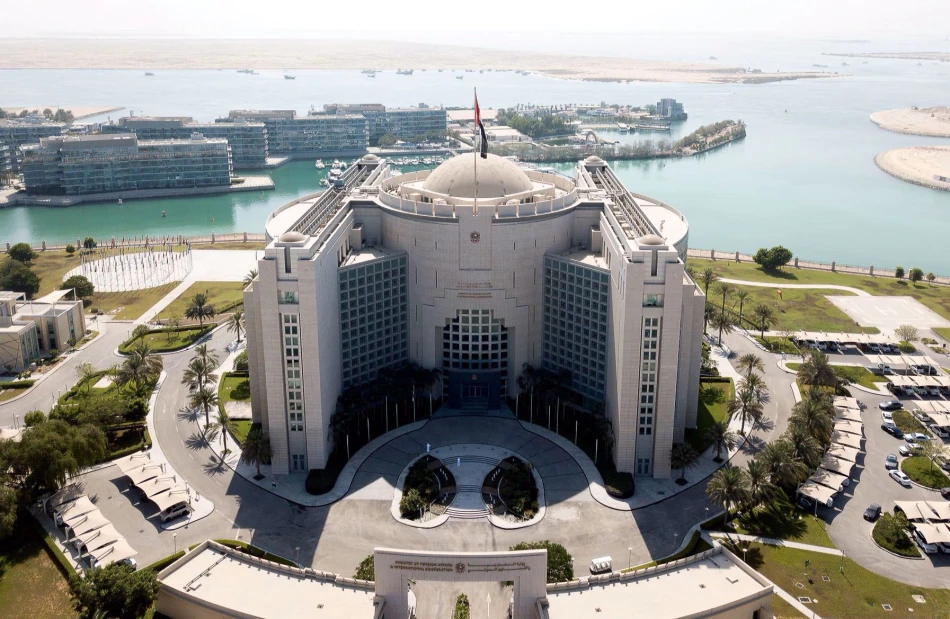
UAE Summons Israeli Deputy Ambassador, Condemns Brazen Attack and Aggressive Statements Against Qatar
UAE Breaks Diplomatic Protocol to Condemn Israeli Attack on Qatar
The United Arab Emirates has taken the extraordinary step of summoning Israel's deputy ambassador to formally condemn what it calls a "blatant and cowardly" Israeli attack on Qatar, marking a rare public diplomatic confrontation between the UAE and Israel since their historic Abraham Accords normalization in 2020. The move signals growing tensions within the complex web of Middle Eastern alliances and highlights the limits of the UAE's relationship with Israel when Gulf solidarity is at stake.
Diplomatic Rebuke Exposes Regional Fault Lines
UAE Minister of State for International Cooperation Reem bint Ibrahim Al Hashemi delivered a sharp rebuke to Israeli Deputy Ambassador David Ohad Horsandi, condemning both the alleged attack on Qatar and aggressive statements by Israeli Prime Minister Benjamin Netanyahu. The UAE characterized the incident as a "flagrant violation" of Qatari sovereignty and a "serious assault" on international law and the UN Charter.
This diplomatic intervention represents a significant moment for the UAE, which has carefully balanced its warming ties with Israel against its traditional Gulf Arab partnerships. The public nature of the condemnation suggests the UAE views the alleged Israeli action as crossing a red line that threatens regional stability.
Gulf Solidarity Trumps Israeli Relations
The UAE's statement emphasized that Qatar's security is "an integral part" of Gulf Cooperation Council security, declaring that any attack on a Gulf state constitutes an assault on the entire Gulf security framework. This language invokes the collective defense principles that have underpinned GCC cooperation since 1981, despite recent years of intra-Gulf tensions.
Testing the Abraham Accords Framework
The diplomatic confrontation puts the Abraham Accords under unprecedented strain. When the UAE became the first Gulf state to normalize relations with Israel in 2020, followed by Bahrain, the agreements were hailed as reshaping Middle Eastern geopolitics. However, this incident demonstrates that normalization has limits when core Gulf interests are perceived to be under threat.
The UAE's willingness to publicly condemn Israel suggests that Gulf Arab solidarity remains a more fundamental strategic priority than the economic and security benefits derived from Israeli cooperation. This calculation could influence other Abraham Accords signatories and potential future partners.
Regional Implications and Strategic Calculations
The UAE's response reflects broader concerns about Israeli actions destabilizing the region at a time when Gulf states are pursuing ambitious economic diversification plans that require sustained peace and stability. The Emirates has invested heavily in positioning itself as a regional business and financial hub, making regional conflicts particularly costly.
Iran Factor and Strategic Balance
This diplomatic crisis also complicates the regional balance of power vis-à-vis Iran. The Abraham Accords were partly motivated by shared Israeli-Gulf concerns about Iranian regional influence. However, Israeli actions that threaten Gulf security undermine this strategic alignment and potentially drive Gulf states toward more independent foreign policy positions.
The UAE's strong stance may also reflect calculations about maintaining credibility with other Arab states and avoiding the perception that normalization with Israel has compromised its commitment to Arab solidarity. This credibility is essential for the UAE's broader regional influence and leadership ambitions.
Economic and Investment Ramifications
Since normalization, UAE-Israel trade has grown significantly, reaching over $2.5 billion in 2022, while Israeli investment in UAE technology and defense sectors has expanded rapidly. This economic relationship now faces potential strain, though both countries have strong incentives to compartmentalize political tensions from commercial ties.
For investors and businesses operating across the region, this diplomatic confrontation highlights the persistent volatility of Middle Eastern geopolitics despite recent normalization efforts. The incident underscores that regional partnerships remain subject to sudden shifts based on security calculations and traditional alliance structures.
Most Viewed News

 Sara Khaled
Sara Khaled






